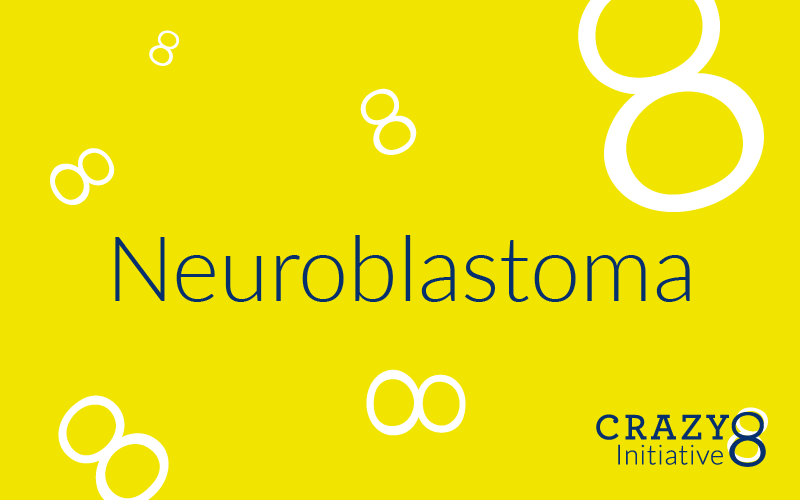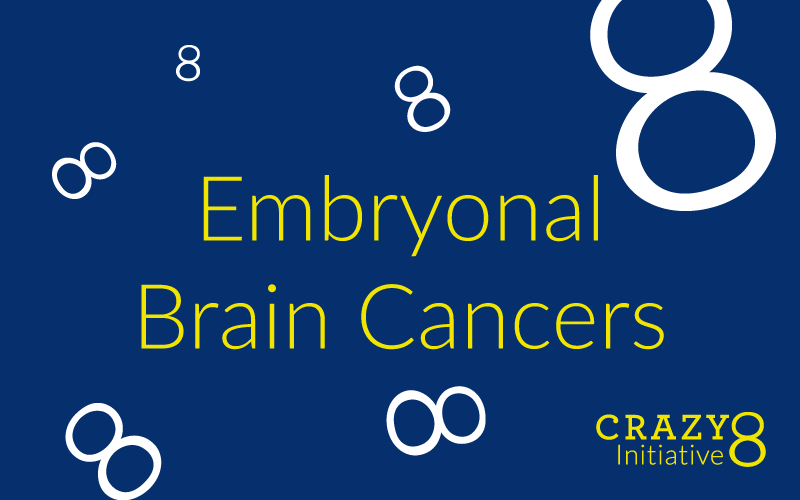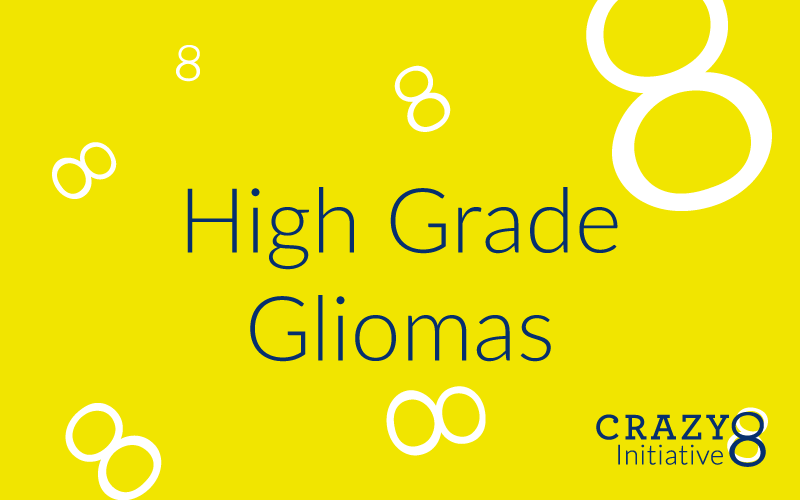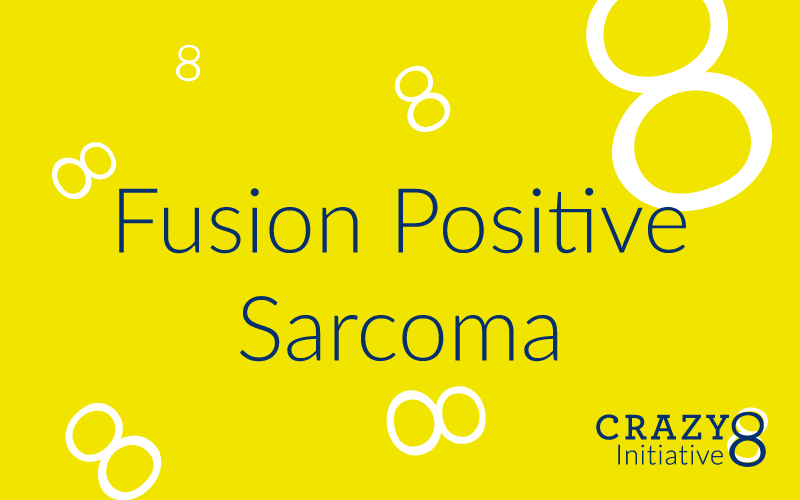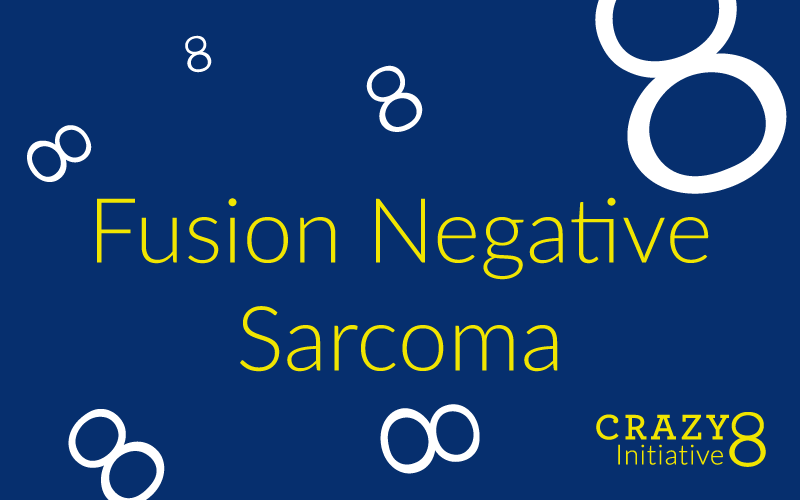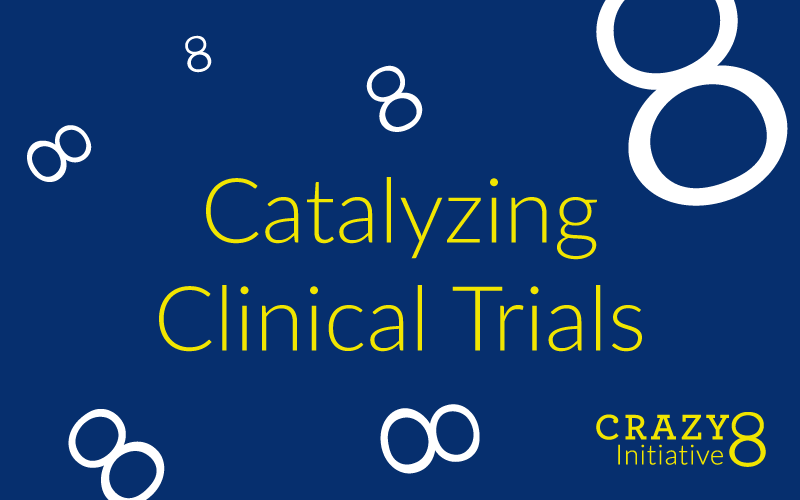by Trish Adkins
In September, Alex’s Lemonade Stand Foundation (ALSF) called over 90 top scientists, pediatric oncologists and researchers from around the world to gather in Philadelphia to discuss the big question:
How can we cross the finish line and find cures for all children fighting cancer?
The meeting kicked off the Crazy 8 Initiative—ALSF’s commitment to identifying obstacles, knocking down roadblocks and developing a comprehensive, achievable plan to foster research, collaborate and accelerate cures for all children.
For a long time, the childhood cancer world has focused on the major obstacle—lack of funding for research. Only a small portion of the federal cancer research budget is allocated to childhood cancers—requiring support from private foundations to make research possible.
However, if money was no object, what else gets in the way of finding cures for the children who are diagnosed with one of the hundreds of types of childhood cancer every day in the U.S.?
That is what the 90 researchers participating in the Crazy 8 Initiative began to answer.
What is the Crazy 8?
“All of us in this room have a fire in our belly and a need to make things change,” said Dr. Nada Jabado, of McGill University and co-chair of the Crazy 8 Initiative, at the opening session of the three-day meeting.
The meeting consisted of working groups tackling one of eight areas of pressing concern in the pediatric oncology world. Six groups discussed hard-to-treat cancers—neuroblastoma, embryonal brain cancers, high grade gliomas, fusion positive sarcomas, fusion negative sarcomas and leukemia. The other two groups discussed umbrella topics that affect all types of childhood cancer treatment and research—the use of big data and the acceleration of clinical trials.
Through small group discussions and full-session cross-topic talks, the researchers identified major obstacles to progress, most notably the need for more high-quality models for testing treatments as well as identifying more genetic drivers of cancer.
“Discovery and research are critical. While we make progress every day, we’ve probably discovered less than 1-percent of all targets,” said Dr. John Maris, of Children’s Hospital of Philadelphia and co-chair of the Crazy 8 Initiative. Dr. Maris is referring to the specific genes, mutations and other biological traits that make cancer develop and grow. By identifying those targets, doctors could match therapies that kill the drivers and in turn, stop the cancer.
But, there is still work to be done to get there. Members of each working group are currently finalizing the first plan to tackle these eight areas. The phase one plans will be available in December 2018. Then specific grant projects will be developed for funding and ALSF can begin to follow the Crazy 8 roadmap straight toward the destination we all dream of: cures.
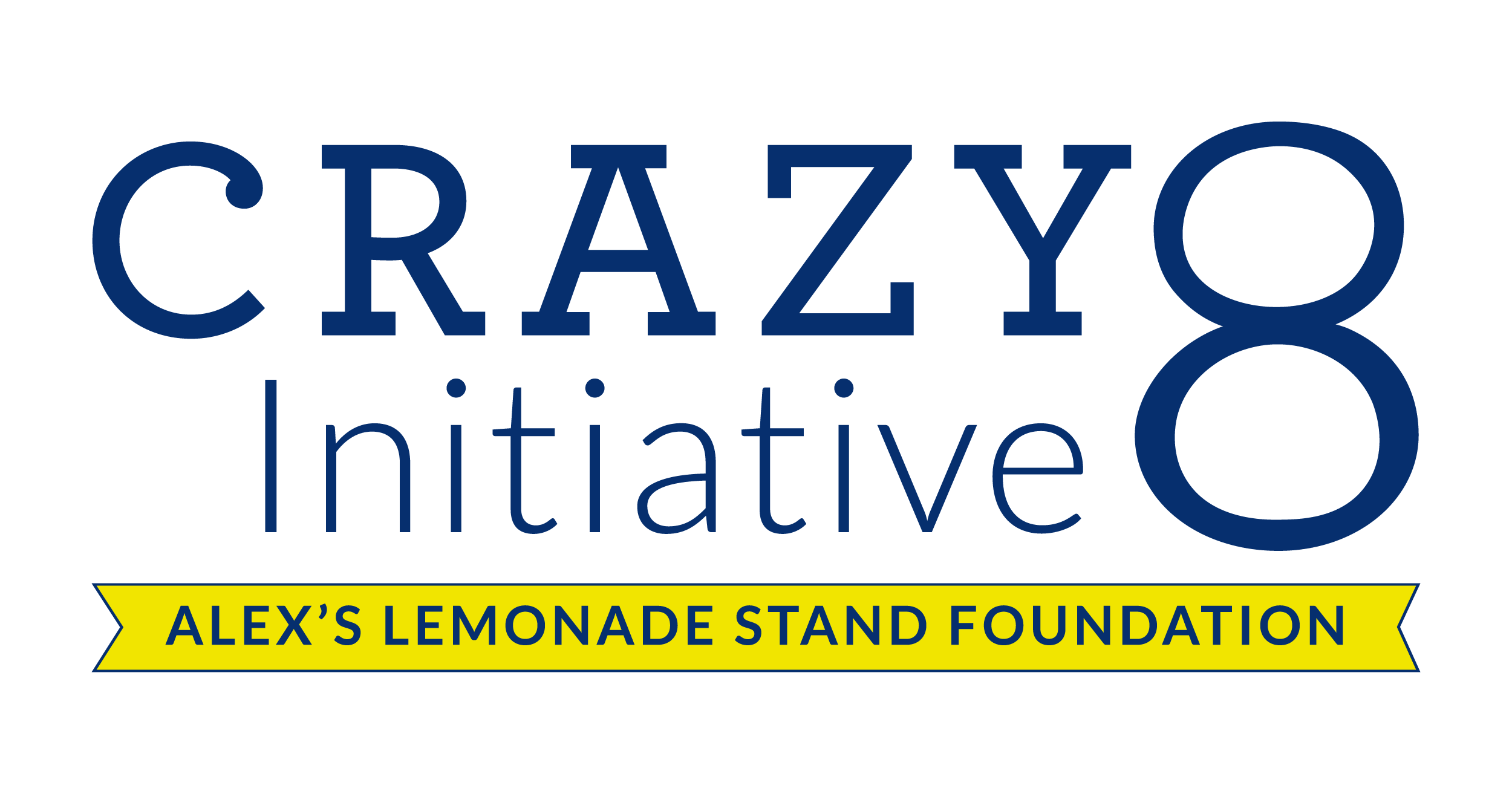 Born from Alex’s Legacy.
Born from Alex’s Legacy.
The idea for the Crazy 8 Initiative was born from the legacy ALSF founder Alexandra “Alex” Scott left for all of us. Alex was treated for neuroblastoma nearly her entire life. When one treatment left Alex feeling good for the first time that she could remember, she told her parents that she wanted to host a lemonade stand to help her hospital make other kids feel better, too.
After that lemonade stand, Alex felt even more dedicated to helping kids like her. When her mother, Liz Scott, suggested that the money raised go toward neuroblastoma research, Alex replied: “But mom that would be selfish.”
Alex knew that all children needed cures. Her legacy compels ALSF to make that dream a reality. You can support the Crazy 8 Initiative and follow along here.


